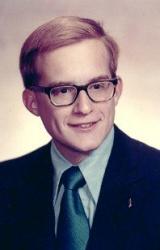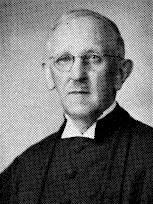1661 - 1735 Person Name: L. A. Gotter Author of "Awaken From Your Idle Dreaming" in Hymnal for Church and Home Gotter, Ludwig Andreas, son of Johann Christian Gotter, Court preacher and Superintendent at Gotha, was born at Gotha, May 26, 1661. He was at first privy secretary and then Hofrath at Gotha, where he died Sept. 19, 1735. He was a pious, spiritually-minded man, with tendencies towards Pietism; and one of the best hymnwriters of the period. Of his printed hymns the earliest appeared in the Geistliches Gesang-Buch, Halle, 1697. Of the 23 included in Freylinghausen's Geistleiches Gesang-Buch, 1704, and Neues, 1714, seven have been translated into English, besides his version of J. W. Petersen's "Salve, crux beata, salve (q. v.). J. C. Wetzel, who had become acquainted with him during a visit Gotter made to Römhild in 1733, mentions a complete version of the Psalter (now in manuscript in the Ducal Library at Wernigerode) by him, and quotes from his manuscript the first lines of 42 hymns still unprinted (Wetzel's Analecta Hymnica, ii. 22-30; Koch, iv. 400-402; Allegemeine Deutsche Biographie, ix. 456). Of his hymns those translated into English are:—
i. In English common use:—
i. Erquicke mich, du Heil der Sunder. [The Great Physician.] On the Gospel for the third Sunday in Advent (St. Matt, xi.), turning it into a prayer for cures of our moral nature similar to the miracles of physical healing there recorded. In Freylinghausen, 1714, No. 771, in 10 st. of 6 1., and in Knapp's Evangelisches Lieder-Schatz, 1837, No. 196. The only translation in common use is:—
Saviour of sinners, now revive us, of st. i., ii., v., x., by Miss Borthwick, as No. 236, in Dr. Pagenstecher's Collection, 1864.
ii. Treuer Vater, deine Liebe. [True and False Christianity.] 1697, as above, p. 608, in 23 st. of 6 1., repeated in Freylinghausen, 1704; and in Porst's Gesang-Buch, 1713 (1855, No. 324). The only translation in common use is:—
Father, Thine eternal kindness, omitting st. x, in J. C. Jacobi's Psalmodia Germanica, 1720, p. 3. Considerably altered in his edition, 1722, p. 50, and 1732, p. 78; and from this 8 st. were included as No. 542 in pt. i. of the Moravian Hymn Book, 1754. The translations of st. xii., xiii., altered from the 1732, and beginning, "Has temptation well nigh won me," were included in the Scottish Evangelical Union Hymn Book, 1856, and in Dr. J. Paterson's Collection, Glasgow, 1867.
iii. Womit soil ioh dich wohl loben. [Praise and Thanksgiving.] A beautiful hymn of Thanksgiving (founded on Ps. xci.) for the wonderful ways by which God in His love and goodness has led us, and of trust in the continuance of His love to the end. 1697, as above, p. 577, in 14 st. of 6 l., and the refrain (altered from Hornburg's "Jesus, meines Lebens Leben.")
"Tausend, tausend Mai sei dir,
Grosser König, Dank dafür."
Repeated in Freylinghausen, 1704, and as No. 1033, in the Berlin Geistliche Lieder S., ed. 1863.
Lauxmann, in Koch, viii. 348-9, relates that st. iv. was adopted as a thanksgiving by the German Missionaries in Abyssinia on their deliverance by the capture of Magdala in 1868, and st. xi., by C. H. Bogatzky, after a narrow escape on one of his journeys in Bohemia; and adds that as the hymn, with its Swabian melody, was a great favourite of the poet Uhland, it was accordingly played by the trumpeters from the tower of St. George's Church, on July 14,1873, at the ceremony of the unveiling of the statue erected to his memory in Tübingen.
The only translation in common use is :—
Lord of Hosts! how shall I render. A good and full translation in Dr. J. Guthrie's Sacred Lyrics, 1869, p. 131; and from this st. i., ii., ix., xiii., xiv., were included as No. 50 in the Ibrox Hymnal, 1871. Another translation is, "With what fervour of devotion," by J. C. Jacobi, 1732, p. 157.
ii. Hymns not in English common use:—
iv. Herr Jesu, Gnadensonne. [Sanctification.] Perhaps his finest hymn. 1697, as above, p. 525, in 8 st. The translations are: (1) "Lord Jesus! Sun of graces," In the Supplement to German Psalter, edition 1765, p. 43. (2) “O shed abroad, Lord Jesus," a translation of st. vi., as No. 1086, in the Supplement of 1808 to the Moravian Hymn Book, 1801.
v. 0 Jesu meine Zurersicht. [Lent.] 1714, as above, No. 772, in 14 st. Translated by N. L. Frothingham, 1870, p. 213, beginning with st. vii.
vi. Sei hochgelobt, barmherz'ger Gott. [Praise for Redemption.] On Eph. i. 3. first in the Geistleiches Gesang-Buch, Darmstadt, 1698, p. 485, in 16 st. Translated as, "High praise to Thee, all-gracious God," by J. Wesley, in Hymns and Sacred Poems, 1740 (P. Works, 1868-72, v. i. p. 339).
vii. Wachet auf, ihr faulen Christen. [Spiritual Watchfulness.] On St. Matt. xxvi. 41. 1697, as above, p. 425, in 7 st., each beginning and ending with the word, "Wachet." Translated as, "Arise! ye lingering saints, arise!" by Mrs. Findlater, in Hymns from the Land of Luther 1854. [Rev. James Mearns, M.A.]
-- John Julian, Dictionary of Hymnology (1907)
Ludwig Andreas Gotter


 My Starred Hymns
My Starred Hymns







